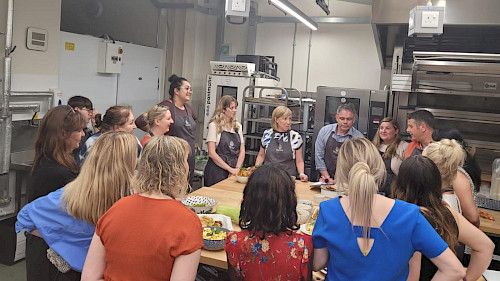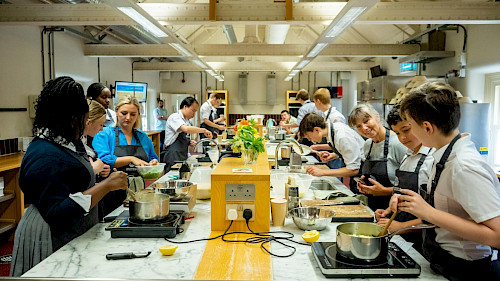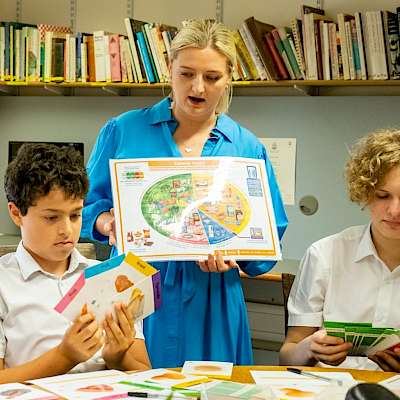Who is Best Food Forward?
Best Food Forward is an evidence-based food education project at The School of Artisan Food aims to make food education accessible and exciting for everyone. We encourage critical thinking about food production, its impact on health and the environment. Currently, we are collaborating with health professionals and secondary schools to make a positive difference.

The power of sustainable eating
Reports like The British Dietetic Association's One Blue Dot and The EAT-Lancet Report show that our food choices impact our bodies and the planet. Food production is responsible for 35% of the UK's greenhouse gas emissions, and our food choices affect our health. By providing knowledge, confidence, and practical food skills, we aim to have a local and eventually national impact on how people relate to food.
Bridging the gap with medical professionals
We collaborate with medical and healthcare professionals to demonstrate how simple and credible information can be incorporated into clinical practice. Diet-related illnesses rob us of 1.5 million healthy years of life, and medical professionals need to guide us toward healthier diets. They're also key players in spreading the word about sustainable eating. Our pilot group showed a 66% improvement in their nutritional knowledge after working with us, including understanding food's impact on health, accessibility, the environment, and practical approaches to eating well.
Nurturing healthier habits in secondary schools
Another group that we work with to improve knowledge of healthy eating and sustainable diets is secondary school pupils. Our work with secondary schools allows young learners to explore the food system and bring it to life during practical cooking sessions. We work with teachers and students to educate them about the food system's role in the human and physical world, including climate change. We make seasonal soup, discussing where the ingredients come from, their seasonality, nutrition, and flavours. It's an opportunity to demonstrate how simple it can be to consume plenty of plants and taste new foods like lentils, tofu, and fresh herbs from the kitchen garden.

Tasty, wholesome, and fun
Sustainable eating can be tasty, wholesome, and fun. We demonstrate that following simple recommendations can significantly reduce the environmental impact of an individual's diet. For some sessions, we source surplus ingredients from FareShare and local suppliers. Participants develop tasty, wholesome recipes and make them for their lunch, encouraging healthy and sustainable eating practices.
Credible and enjoyable food education supports human and planetary health. Collaborative efforts between medical professionals, schools, and organisations like Best Food Forward encourage learners to take small, achievable steps toward sustainable eating for a brighter, healthier future.
If you want to learn more about Best Food Forward's initiatives, visit our website and social media channels.
Website: www.bestfoodforward.co.uk
Instagram: @thebestfoodforwardproject
Facebook: @BestFoodForwardProject
